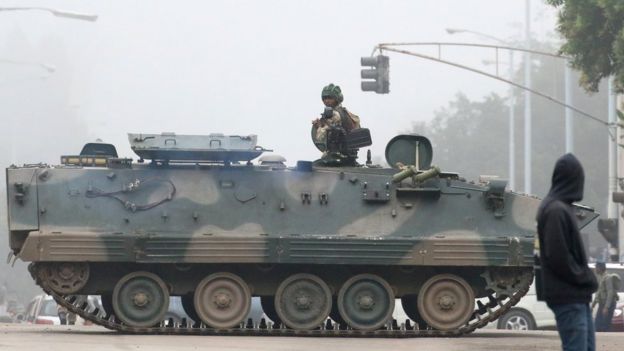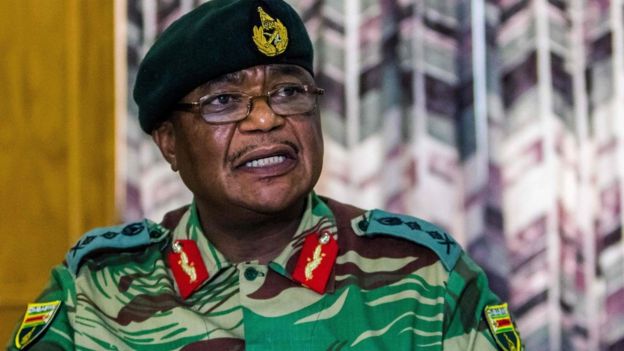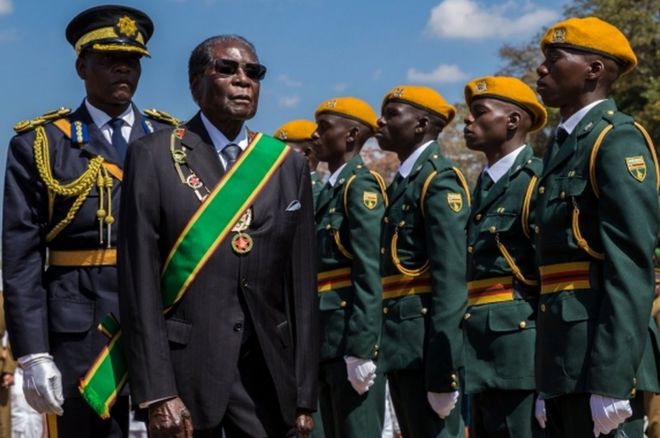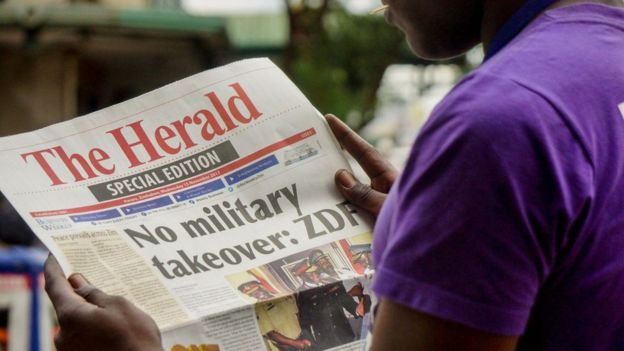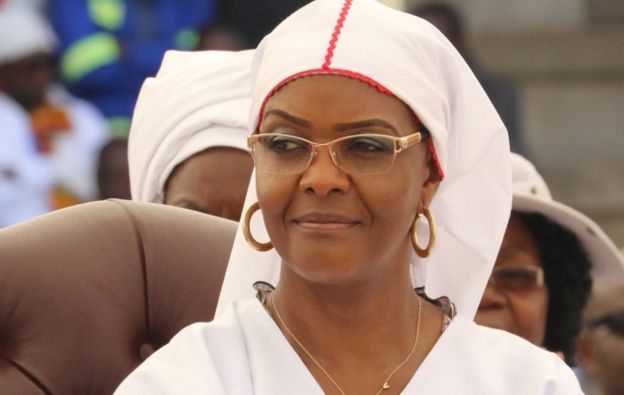Disir
Platinum Member
- Sep 30, 2011
- 28,003
- 9,608
- 910
Police have put a “red alert” on South Africa’s borders to prevent any attempt by Zimbabwean first lady Grace Mugabe, accused of assaulting a model in a Johannesburg hotel, to flee the country.
Her husband, Zimbabwean President Robert Mugabe, has meanwhile arrived in South Africa for a regional summit, complicating the diplomatic dilemma confronting the government.
Grace Mugabe, 52, has asked for diplomatic immunity in the case, but she has not been charged.
Her whereabouts were not known to the authorities yesterday.
The alleged victim, 20-year-old model Gabriella Engels, has accused Mugabe of barging into a hotel where Engels was meeting with Mugabe’s sons, and whipping her with an electric cord.
Police Minister Fikile Mbalula told reporters on Wednesday that Grace Mugabe had been due to appear in court on Tuesday afternoon under a deal struck with authorities, but failed to turn up.
Yesterday Mbalula said that police had put a “red alert” for the first lady on South Africa’s borders.
“We had already put tabs on the borders, in relation to her leaving the country, so there’s no question about that,” he told reporters.
So far she had made no attempt to flee, he added.
The South African government has made no official comment on the case and foreign ministry spokesmen have not answered their phones for two days, but the issue is causing waves at the highest level.
Justice Minister Michael Masutha told Reuters that he was attending a meeting on Wednesday evening to discuss the matter.
The police have said Grace Mugabe will get no special treatment.
Former state prosecutor Gerrie Nel said the Engels family had been approached by a third party to accept a cash settlement to drop the case.
“The family is not interested in doing that,” said Nel. “They said let us talk and make this go away. No amount was mentioned.”
Nel, who laid out the murder case against track star Oscar Pistorius and is nicknamed “the Pitbull”, told a news conference that he was ready to represent Engels.
He said an investigator had told him police were preparing an arrest warrant for Mrs Mugabe.
However, a senior police source said that was not the case.
South Africa borders on alert for Grace Mugabe
SA Gabriella Engels recalls Grace Mugabe 'beating' | Daily Mail Online
She is going to get out of it.
Her husband, Zimbabwean President Robert Mugabe, has meanwhile arrived in South Africa for a regional summit, complicating the diplomatic dilemma confronting the government.
Grace Mugabe, 52, has asked for diplomatic immunity in the case, but she has not been charged.
Her whereabouts were not known to the authorities yesterday.
The alleged victim, 20-year-old model Gabriella Engels, has accused Mugabe of barging into a hotel where Engels was meeting with Mugabe’s sons, and whipping her with an electric cord.
Police Minister Fikile Mbalula told reporters on Wednesday that Grace Mugabe had been due to appear in court on Tuesday afternoon under a deal struck with authorities, but failed to turn up.
Yesterday Mbalula said that police had put a “red alert” for the first lady on South Africa’s borders.
“We had already put tabs on the borders, in relation to her leaving the country, so there’s no question about that,” he told reporters.
So far she had made no attempt to flee, he added.
The South African government has made no official comment on the case and foreign ministry spokesmen have not answered their phones for two days, but the issue is causing waves at the highest level.
Justice Minister Michael Masutha told Reuters that he was attending a meeting on Wednesday evening to discuss the matter.
The police have said Grace Mugabe will get no special treatment.
Former state prosecutor Gerrie Nel said the Engels family had been approached by a third party to accept a cash settlement to drop the case.
“The family is not interested in doing that,” said Nel. “They said let us talk and make this go away. No amount was mentioned.”
Nel, who laid out the murder case against track star Oscar Pistorius and is nicknamed “the Pitbull”, told a news conference that he was ready to represent Engels.
He said an investigator had told him police were preparing an arrest warrant for Mrs Mugabe.
However, a senior police source said that was not the case.
South Africa borders on alert for Grace Mugabe
SA Gabriella Engels recalls Grace Mugabe 'beating' | Daily Mail Online
She is going to get out of it.



